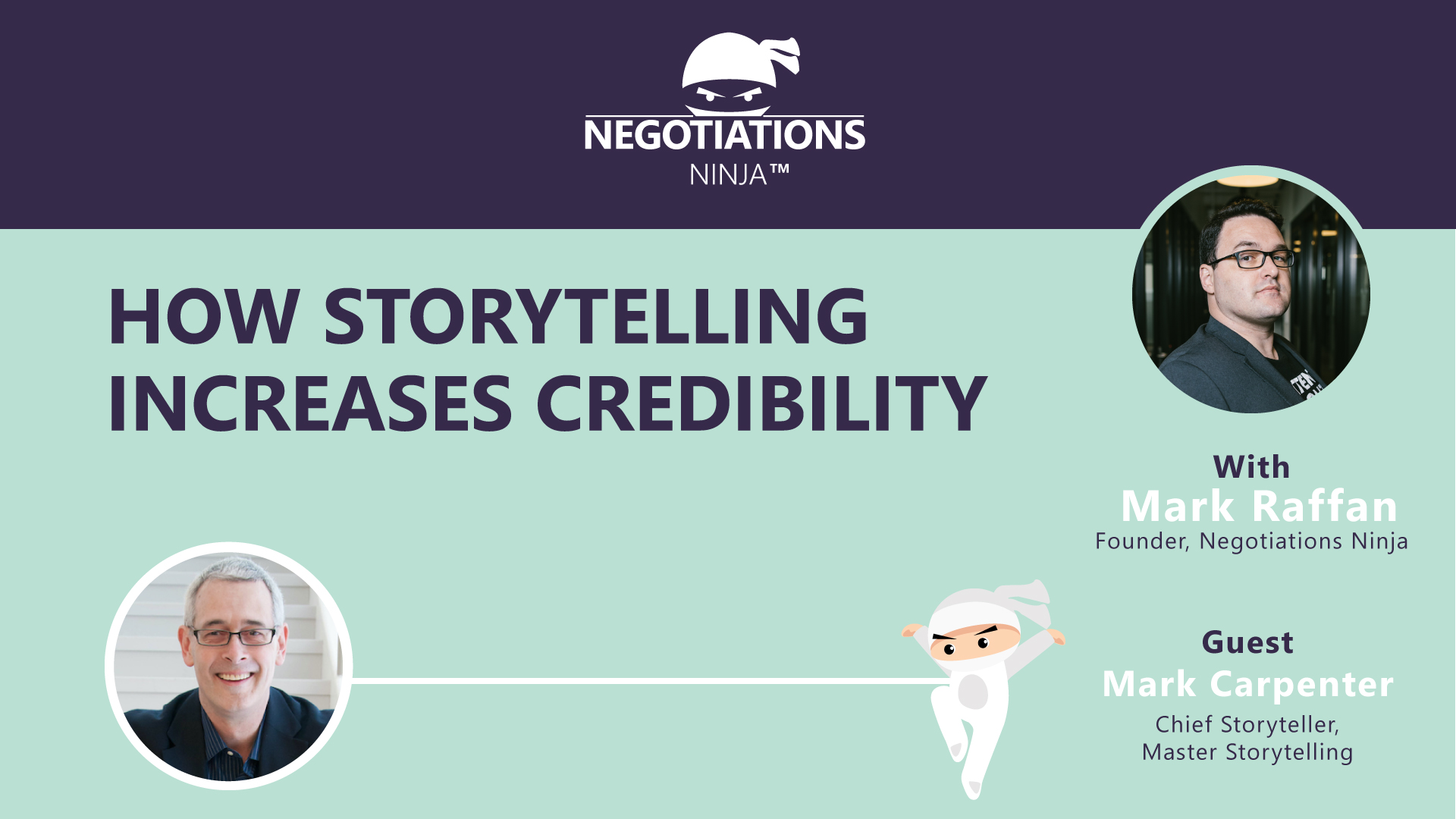Logic and rational thinking don’t always work to convince someone to do something. People hear “Storytelling” and think of novels, movies, TV shows, etc. They don’t see it as what it is: A skill. Intuitively, people connect through stories. It’s how we make sense of the world. Storytelling moves someone toward action. And storytelling increases credibility. Mark Carpenter shares how to craft a simple yet compelling story—and shares how they boost your credibility—in this episode of Negotiations Ninja.
Outline of This Episode
- [2:31] Learn more about Mark Carpenter
- [4:13] Storytelling increases credibility
- [7:15] What do great stories include?
- [10:39] Simplify your storytelling
- [15:02] How to get comfortable telling stories
- [17:17] How to turn an experience into a story
- [20:41] Learn more about Story-catching
Storytelling increases credibility
Data, charts, graphs, etc., aren’t as powerful as storytelling. A university conducted a study with three groups of graduate students. They gave one group information in the form of pure data. They gave another group the data accompanied by charts and graphs. The third group was told the data in the context of a story.
Two weeks later, they tested:
- How much they remembered
- How accurately they remembered the data
- What it did for them (emotional reaction)
There was no statistical difference between the first two groups between how much they remembered and how accurate their memories were. But the group that heard the story remembered the information, remembered it more accurately, and found it more credible.
If leaders want to increase the credibility of their message(s), they need to learn to tell stories. It doesn’t change the data but changes the connection between the storyteller and the listener, which makes all the difference.
Storytelling increases know, like, and trust
Paul Zak has researched what happens in people’s brains when they hear stories. Mark notes that when you hear a story that you can relate to, you get an increase of oxytocin in your brain, which builds happiness and trust. It’s also why people find your information more credible. To build knowledge, trust, and like, learn to tell stories.
What do great stories look like?
The foundation for most great stories ties back to the hero’s journey. Mark refined it down to three steps. You have to lay out the situation (introduction) and share what you’re trying to accomplish.
Secondly, you have to introduce conflict. What’s in the way of accomplishing a goal? People pay attention because they feel the psychological need to find out what happens next.
The final stage is the change. What happened to overcome the challenge? Or what did you learn from it? It doesn’t always have to be a success story. If someone didn’t overcome a challenge, it might get the listener thinking about what they may have done differently.
Learn how to turn your life experiences into stories—and how to get more comfortable telling them—in this episode of Negotiations Ninja.
Resources & People Mentioned
Connect with Mark Carpenter
- Get Mark’s FREE resource: Story Catcher
- Master Storytelling
- Connect on LinkedIn
Connect With Mark
- Follow Negotiations Ninja on Twitter: @NegotiationPod
- Connect with Mark on LinkedIn
- Follow Negotiations Ninja on LinkedIn
- Connect on Instagram: @NegotiationPod




